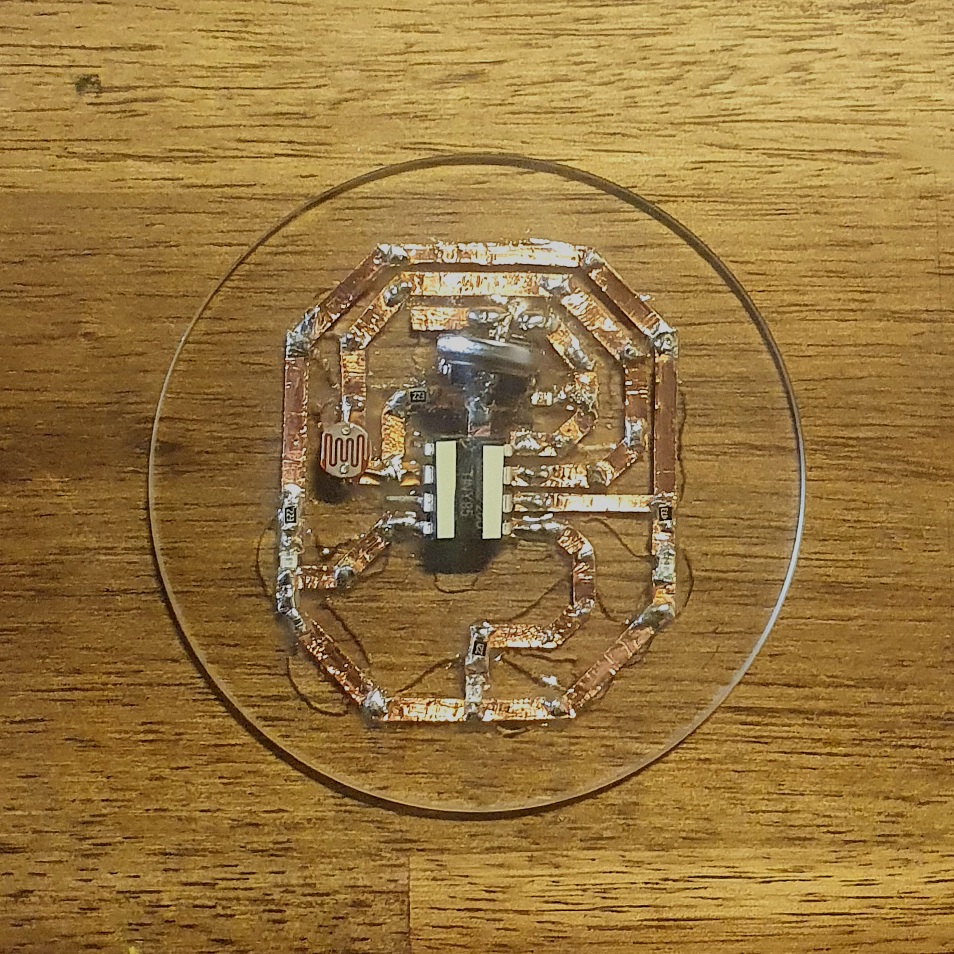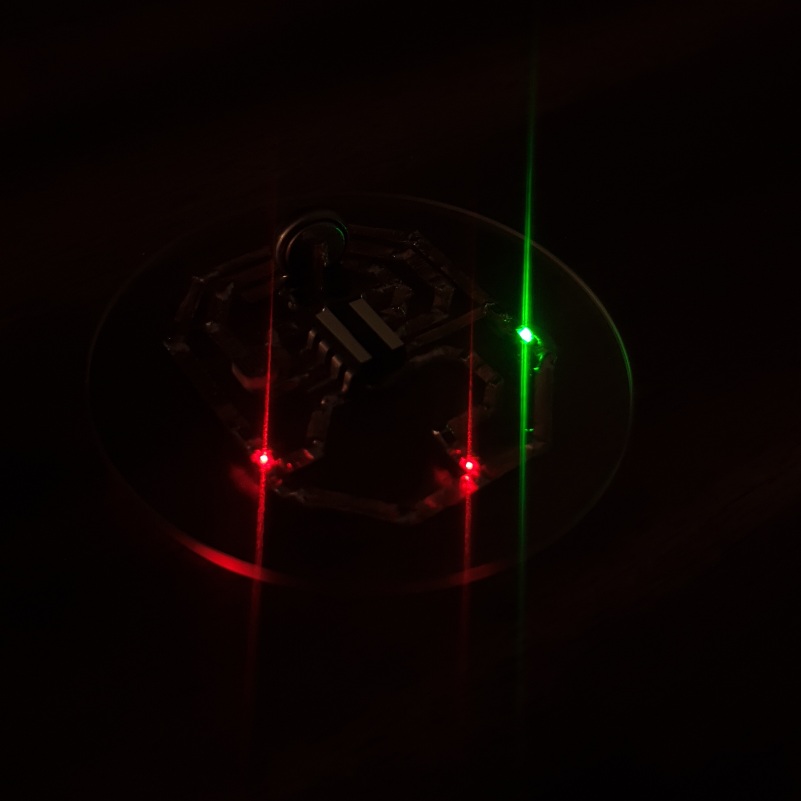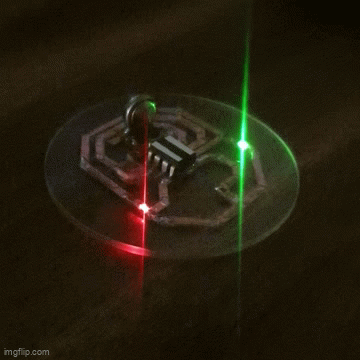Abstract aircraft sculpture
Description
Ultra low power ATtiny85-based ‘glass PCB’ style electronics sculpture, featuring a pair of position and strobe lights that activate automatically at night. An abstract representation of an aircraft, quite useless if you ask me.
I need to get a power profiler to find the real power consumption but it’s been running for weeks now on a 30mAh coin cell.
Materials
| Item | Quantity | Description |
|---|---|---|
| Soldering required | ||
| Copper tape | 1 | |
| Glass | 1 | |
| 0805 SMD LEDs | 3 | Red, red, green |
| 0805 Resistors | 4 | 220, 2x 22K, 47K ohm |
| LDR | 1 | GL5516 Photoresistor |
| 0805 Capacitor | 1 | 0.1uF |
| 8-DIP ATtiny85 | 1 | Microcontrolller |
| Programmer or Arduino | 1 | To program the ATtiny85 |
| CR927 coin cell | 1 | 3V |
| 90º pin headers | 6 | To make a dirty surface-mount battery holder |
| Epoxy | Optional but desirable to secure everything in place |
Schematics

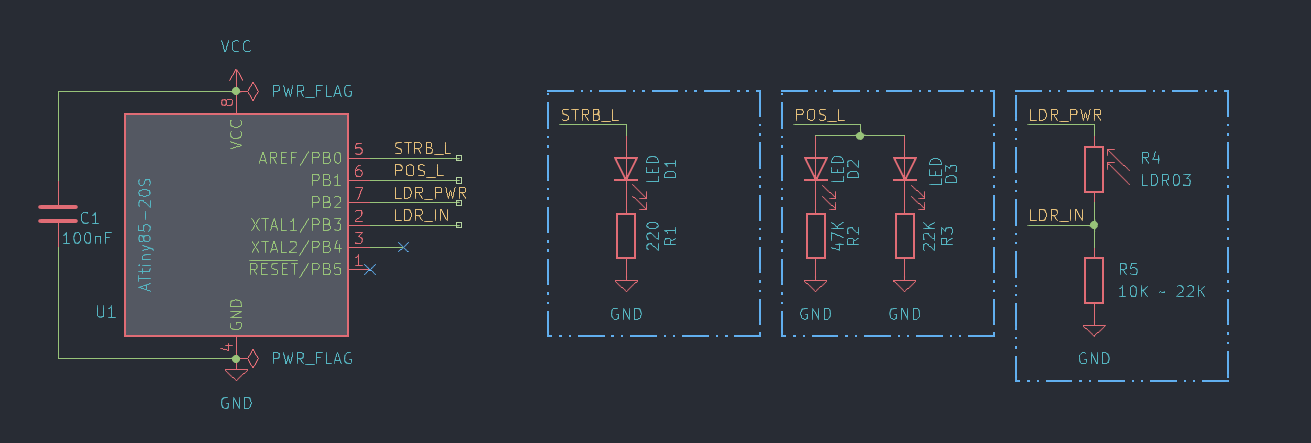
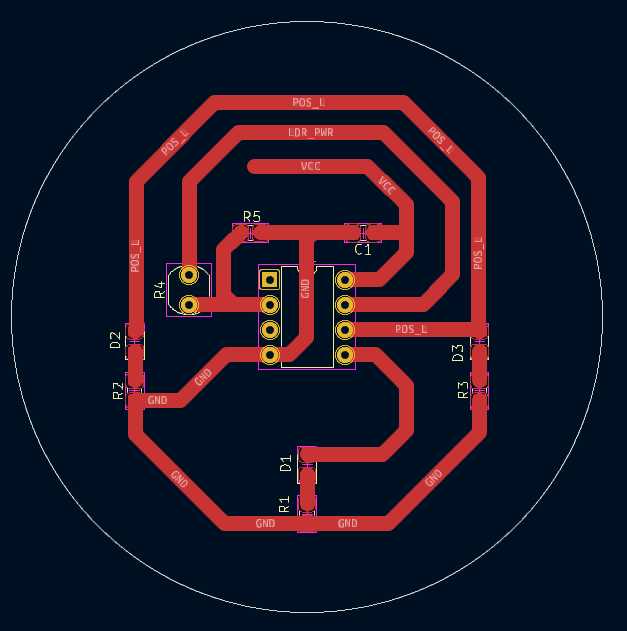
Preparation
-
Program the ATtiny85, I used Arduino as ISP.
-
Print the circuit guide, place it beneath the glass and replicate it over the glass with thin copper tape. If the adhesive side is non-conductive, solder the tape joints. Use flux and low temperature or you’ll burn the tape.
-
Use the schematic and footprint diagram as a guide to place and solder the components. Start with the pin headers (bend them inwards a little with pliers to give them enough tension to hold the coin cell) and work your way out to the edges.
Program
This project uses the TinySnore library. The program is uploaded using Arduino as ISP.
#include <tinysnore.h> // Low power library; not needed, but makes it simpler
const byte ledsPin = 1; // Low If LED-resistor combination allows to stay well under the 20mA output limit
const byte beaconPin = 0;
const byte ldrpwrPin = 2; // Pin to 'power up' the LDR only while we read the voltage
const byte ldrdataPin = 3; // Voltage read
void setup() {
pinMode(ledsPin, OUTPUT);
pinMode(ldrpwrPin, OUTPUT);
pinMode(beaconPin, OUTPUT);
pinMode (4, INPUT_PULLUP); // Save some power, probably redundant
}
void loop() {
digitalWrite(ldrpwrPin, HIGH); // Power up the LDR
delay(5); // Stabilize
int sensorValue = analogRead(ldrdataPin); // Read LDR at voltage divider
digitalWrite(ldrpwrPin, LOW); // Power down LDR
if (sensorValue <= 300) { // Modify value to make it more or less sensitive to light (0-1023)
digitalWrite(beaconPin, HIGH);
digitalWrite(ledsPin, HIGH);
delay(15); // The beacon is flashing
digitalWrite(beaconPin, LOW);
snore(1000); // Go to sleep with the position lights ON; change value to
} // change flashing interval
else {
digitalWrite(ledsPin, LOW);
snore(3000); // Go to sleep with the position lights OFF; increase
} // value to save power but it'll be less reactive
delay(10);
}
Links
Check out the TinySnore library.
Gallery
